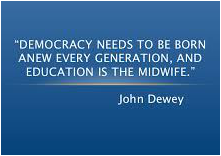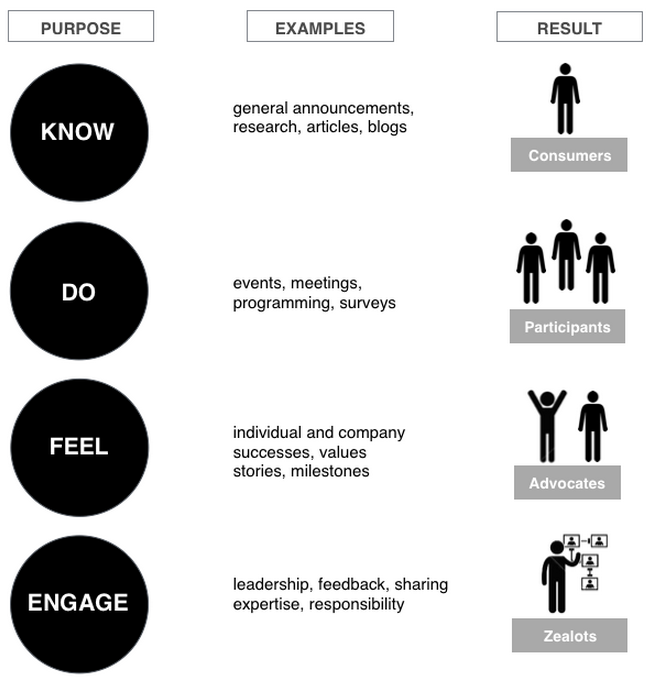|
Writing business communications for a mobile audience is very different than writing for the web, much less a pdf newsletter or “fax blast!” Content can be harder to comprehend and consume. It’s typically viewed on the move, read on a tiny screen, and scrolled with the flick of a thumb.
So, if you want someone to read your message, you better make it a thumb-stopper. Here are a few tips: 1. Match the audience and content. If you can’t do this one right, the rest won’t matter. “All staffs” are rarely for all staff and any message that starts with “if this doesn’t apply to you, please ignore” cues everyone to ignore it. It says that you don’t care enough to select the right audience, so I don’t care enough to read it! 2. Use a strong Subject/Headline: Mobile audiences are used to scrolling for information with the flick of a thumb. Subject/headlines count. A mobile reader will decide with a glance if a message is worth reading. A good subject/headline is no more than six words and lets a reader know exactly what they will find when they click to read the message. Or, better yet, maybe it can convey the whole message. For example: “Parking Lot 4 Closed Today” versus “Pardon the Inconvenience” 3. Use keywords to grab attention. Assuming you have chosen the right audience (see 1.), you should also know what is important to them. So, choose words in your subject/headline that will automatically express relevance and timeliness for the particular recipients. Generic words get generic responses. Focusing on a few keywords can also help prevent long, meandering headlines. 4. Be focused and concise. These two work hand-in-hand. Focus on one topic so you don’t bury the recipient in information and you don’t bury important topics in an epic list. Mobile audiences are not going to cull through complex or layered information and they probably aren’t interested in a display of your literary prowess. 5. Make clear questions or calls-to-action. If you want someone to do something, don’t hide it. Whether it’s just feedback on a question or a direct order, making the prompt clear from the start will give you a better chance of getting the response you want.
0 Comments
If you don’t really know why you are communicating, then your audience won’t really know why they should listen.
An effective communication strategy requires a mix of communication types, not only in terms of media, but also in terms of reasons why you are communicating. We typically overwhelm people with things we want them to know (whether they asked for it or not) and things we want them to do (whether they want to, need to, or not). These are largely transactional communications. And, despite their prevalence, when it comes to building a connection with your audience, “know” and “do” communications are the weakest forms (other than communicating to hear yourself communicate, of course). At some point, we need to make people feel and feel a part of (engage) what we are doing as an organization. After all, transactional communication will deliver transactional relationships. If we want something more, we need to communicate accordingly.  I don’t want to make too much of one day off of school for students, but I do think it is worth noting the symbolism and perhaps extrapolating that a bit to a bigger issue with our system of public education and its relationship to our democracy. This past Election Day, our public schools were closed to students. It was a day off. The day we could have connected basic math with the importance of voting; the day we could have brought together ratios with political representation; the day we could have connected geometry with gerrymandering; the day we could have applied statistics to get-out-the-vote strategies. The day math could have felt really real and really important and with its application visible on the news and on the internet and in social media. We took it off. That same day we could have talked about political speech and persuasive writing in English class and then read it, watched it live, or practiced it ourselves; the day we could have talked about the past, present, and future aspects of voting rights in History or Social Studies, looked at real ballots and tracked live voting across the country, even held our own mock elections on the issues; the day we could have used examples of contentious political discourse to talk about conflict resolution and effective communication. The day school could have been about democracy. The day it would have had immediate meaning, live examples, and real-world implications. We took it off. Election Day is that day when all of our talk about how critical education is to a functioning democracy could reach its culmination and could feel real and tangible for our young people in our schools. It’s a day we could talk about rights and responsibilities, citizenship, leadership and so much more that would improve our schools, communities, and political system. I fear the merely theoretical connection we make between education and democracy. In theory, we all know how critical an educated, informed, and engaged populace is to the sustainability of this huge, democratic experiment our country is living and manifesting. And yet, I look at the direction of public education and the realities of abysmal voter turnout and I know we are living in theory. On Election Day, we have more opportunities to create and sustain a healthy democracy than just casting a vote. Unfortunately, most of us took it off. |
Categories
All
Archives
April 2024
|

 RSS Feed
RSS Feed